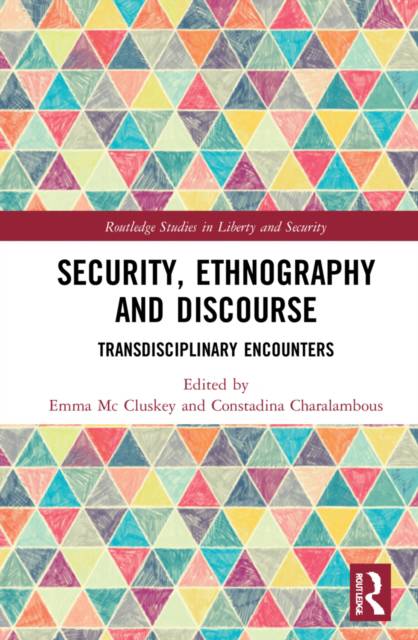
- Retrait gratuit dans votre magasin Club
- 7.000.000 titres dans notre catalogue
- Payer en toute sécurité
- Toujours un magasin près de chez vous
- Retrait gratuit dans votre magasin Club
- 7.000.0000 titres dans notre catalogue
- Payer en toute sécurité
- Toujours un magasin près de chez vous
Security, Ethnography and Discourse
Transdisciplinary Encounters
Description
This interdisciplinary book analyses different contexts where security concerns have an impact on institutional or everyday practices and routines in the lives of ordinary people.
Creating a dialogue between the fields of International Relations, Peace and Conflict Studies, Sociolinguistics, Education and Anthropology, this book addresses core themes associated with conflict and security - peacebuilding, refugee settlement, nationalism, surveillance and sousveillance - and examines them as they manifest in everyday spaces and practices. Seven empirical studies are presented that bring ethnographic and/or close-up interactional lenses to practices of security in schools, refugee centres, care homes, city streets and roadsides. Drawing on fieldwork and data from Cyprus, Bosnia-Herzegovina, Sweden, Germany and the US, the chapters explore what notions of suspicion, peace, conflict and threat mean and how they are manifested in people's lived experiences.
This book will be of much interest to students of Critical Security Studies, Anthropology, Sociology, Sociolinguistics and International Relations in general.
Spécifications
Parties prenantes
- Editeur:
Contenu
- Nombre de pages :
- 210
- Langue:
- Anglais
- Collection :
Caractéristiques
- EAN:
- 9780367532017
- Date de parution :
- 22-12-21
- Format:
- Livre relié
- Format numérique:
- Genaaid
- Dimensions :
- 156 mm x 234 mm
- Poids :
- 489 g






